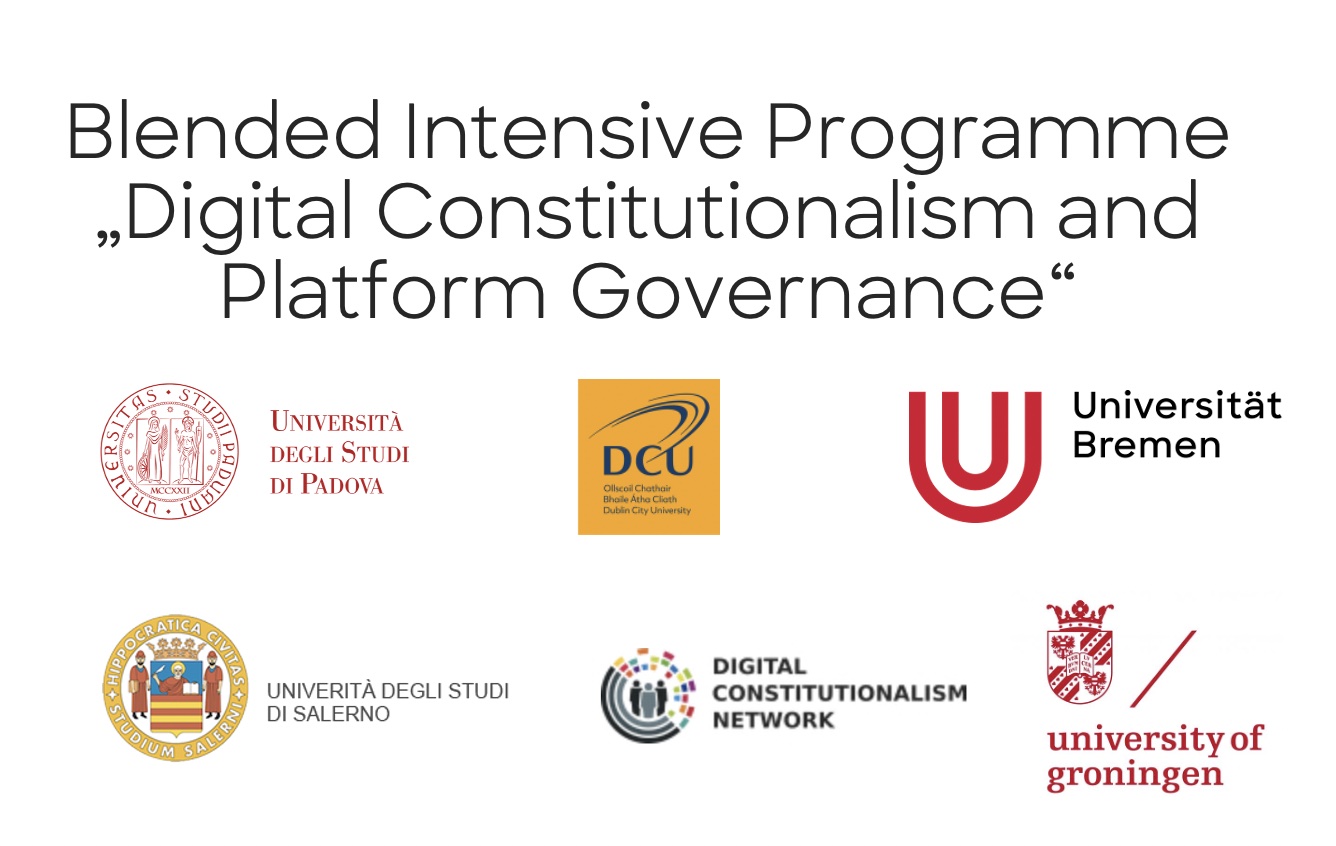Students of the BA Communication and Media Studies and the two MA programs at ZeMKI, University of Bremen, participate in a transnational blended learning experience funded by the Erasmus+ program. More than a dozen students from ZeMKI’s programs and the university’s Political Science MA study programs participate in a so-called “blended-intensive programme” (BIP), a relatively new format designed by and funded through Erasmus+. They are joined by students from the University of Padova (Prof. Padovani and Dr. Petracchin), which also acts as a coordinator of the BIP, and Dublin City University (Prof. Celeste). Additional partners without students in the mobility include the University of Salerno (Prof. Santaniello) and the University of Groningen (Prof. Franklin). At the University of Bremen, the BIP is co-organized by PGMT Lab member Dr. Dennis Redeker and Adio-Adet Dinika (BIGSSS).
In the interdisciplinary, semester-long program, students explore the intersections between digital constitutionalism and platform governance. It aims at providing students with the theoretical, analytical and methodological tools to make sense of the values and principles that (should) guide regulatory arrangements for the digital age, while critically addressing actors’ interactions and power positions as well as power limitations in the same context. The general theme will be articulated in two sub-themes – values and fundamental rights and digital and green transition – around which a variety of educational activities will be organised. The program will also provide participants transversal skills, including: public speaking, group work, intercultural competences and the know-how needed for effective interventions in digital and platform governance.
The first component of the BIP is a virtual phase in May and June 2023 to explore select topics at the intersection of digital constitutionalism and platform governance and to get to know the other university’s students and instructors. Sessions were conducted that discuss topics such as “Fundamental Rights in the Digital Age”, “The Governance of Cybersecurity: Resilience, Human Rights and Democracy”, “The Content Governance Dilemma – Digital Constitutionalism, Social Media and the Search for a Global Standard” and “Green Transition, Digital Transformations and Sustainability”. As part of the second component, in late September 2023, students and instructors will spend five days at the University of Padova . There, they will deepen their understanding of these topics through in-depth discussions, engagement with guest speakers and the development of policy briefs.
In order to facilitate funding and logistics, the BIP relies on helping hands in the universities’ administrations (particularly in Padova this year). From the Bremen side, Barbara Hasenmüller (International Office) and her colleagues have been instrumental to enabling the mobility of so many students from Bremen. Dr. Sinner (ZeMKI) and Prof. Haunss (SOCIUM) support the academic recognition of this new form of short-term exchange.
The BIP is the latest project of the interdisciplinary Digital Constitutionalism Network (DCN), and integrates into the fourth iteration of the DCN Teaching Partnership, in which additional universities and instructors participate, usually through virtual joint sessions.
